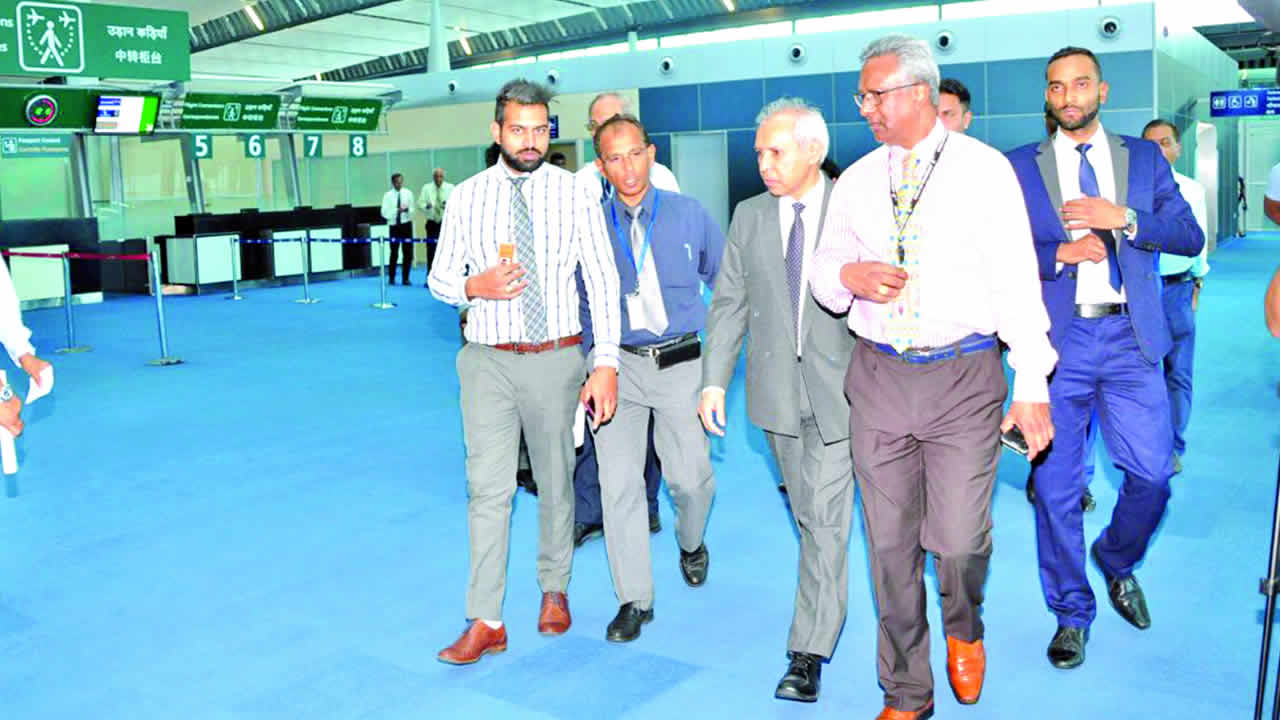
All precautionary and control measures are being taken at both the airport and the port. Surveillance is also being reinforced at all levels in a bid to prevent transmission of pneumonic plague, which is currently affecting Madagascar. This statement was made by the Minister of Health and Quality of Life, Anwar Husnoo, during a visit at the Sir Seewoosagur Ramgoolam International Airport in Plaine Magnien to take stock of the different precautionary and control measures taken by the Public Health department at the airport.
In a statement to the press, Minister Husnoo highlighted that plague is endemic to Madagascar but contrary to past outbreaks, this one is affecting large urban areas including the capital and port cities. He added that the outbreak of plague is an annual occurrence in Madagascar, which normally reports about 400 cases per year, usually in remote highlands. This outbreak is different, he underlined, since many of the infected live in more densely populated towns and the capital and the infections reported is pneumonic plague, which is transmitted through the air, making it much more difficult to control.
He pointed out that as at now, around 350 cases and 46 deaths have been reported in Madagascar since the outbreak. According to him, it is imperative to monitor the situation since around 1,200 passengers per week travel from Madagascar to Mauritius.
Dr Husnoo also listed out the series of measures being taken at the airport. They include: inspection and disinfection of all planes arriving from Madagascar; referral of passengers arriving from Madagascar and who are suffering from cough to the Regional Public Health Superintendent; filling of Health Declaration Form by passengers and screening of travelers at Health Counters and their particulars are forwarded to the appropriate regional Health Office for surveillance for ten days; admission of any suspect case at New Souillac Hospital for investigation and treatment. Rodent control activities have also been intensified at the airport. Aircrafts leaving for Madagascar are also being disinfected.
Surveillance at the port has also been reinforced. The measures include: inspection of all ships arriving from Madagascar with valid Ship Sanitation Control Certificate; placing of rat guards to ships arriving and berthed at quay; fumigation of food cargo before release; intensification of rodent control activities; inspection of all premises by Public Health Inspectors; and surveillance of crew members.
In view of the prevailing situation, the Health Minister appealed to the public to avoid travelling to Madagascar unless necessary. He also announced that a separate corridor for those coming from Madagascar will soon be put in place.
Plague-Fact Sheet
Plague is a bacterial infection that is usually spread through bites by infected fleas. When acquired by flea bite, plague has symptoms of high fever and swollen and tender lymph nodes that occur 2-6 days after the bite. If not treated, infection can spread to the lungs and cause pneumonia.
Pneumonic plague or lung-based plague is the most virulent form of plague and can trigger severe epidemics through person-to-person contact via droplets in the air. The incubation period can be as short as 24 hours. Typically, the pneumonic form is caused by spread to the lungs from an advanced bubonic plague. However, a person with secondary pneumonic plague may form aerosolised infective droplets and transmit plague via droplets to other humans. Untreated pneumonic plague is always fatal.
Plague is an endemic disease in Madagascar; cases (predominantly bubonic plague) are reported nearly every year, during the epidemic season between September and April. However, the ongoing pneumonic plague event has been reported in a non-endemic area and in densely populated cities for the first time.
 J'aime
J'aime














